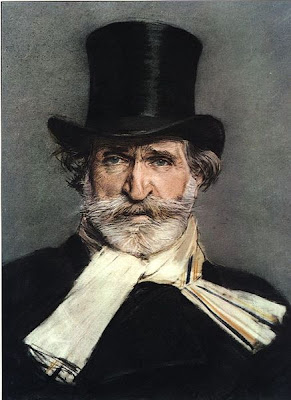
The woman in the picture above could very well be Violetta.
Violetta Valery was the lady’s full name and she was the star of Verdi’s opera “La Traviata,” perhaps the most-performed opera in history.
The prompt reminds us of her because it could well be a picture of someone who, like Violetta, is declaring her freedom. Other women were interested in such things as a guarantee of security -- marriage, family, home. Violetta was a person who wanted her independence. She lived a life that was a veritable kaleidoscope of adventures, a life dedicated to joy, beauty, pleasure and romance.

Above: Anna Netrebko, who's not just beautiful but is also one of the greatest sopranos of our present day -- she sang the role of Violetta.
In the opera she played what they used to call, a century and a half ago, a courtesan. It was not difficult to become a courtesan, actually. You just had to be extremely attractive, young, witty, charming, and you had to have a group of rich – and generous -- male friends who would cherish and support you.
Violetta had a life made up of all these and she gloried in that life. One of her best-known arias in the opera is titled “Always Free” – “Sempre Libera.”
Sempre libera degg'io
Folleggiare di gioia in gioia.
Always free, I frolic
From joy to joy.
Vo'che scorra il viver mio
Pei sentieri del piacer.
I run about to feel,
To taste every pleasure.
Nasca il giorno, o il giorno muoia,
Sempre lieta ne'ritrovi.
As the day is born, or as the day dies,
I’m always seeking gladness, happiness.
However, as you might expect, Violetta discovers true love; there’s a chap, a young nobleman named Alfredo Germont, who declares his love for her. At first she laughs him off. Serious love, commitment? She implies that she felt a tinge of nausea at the very thought of such a conventionsl, humdrum life. But of course she changes her mind (or there’d be no opera).

Today Giuseppe Verdi, one of the greatest composers who ever lived, would probably be surprised to learn that there are many women who also have lives dedicated to a kaleidoscope of happiness and beauty, as well as to home and family, and the key point is they have the freedom to do so.















